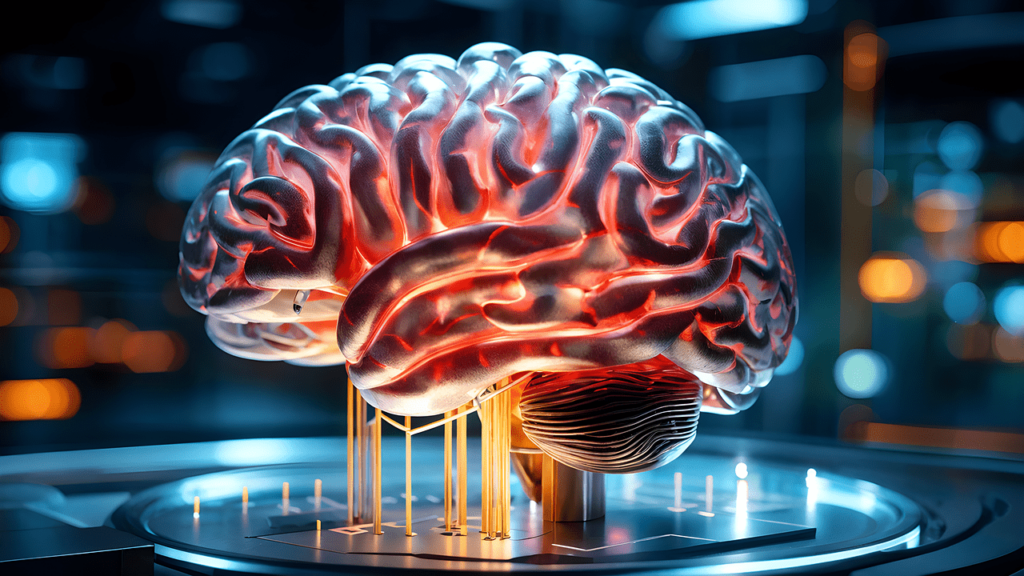What if there was a way to boost your focus, enhance your memory, and support overall cognitive function? You might be surprised to learn that brain stimulant supplements could be the answer. With a growing interest in health and wellness, these supplements have gained traction as people seek ways to optimize their mental performance.
Understanding Brain Stimulant Supplements
Brain stimulant supplements, often referred to as nootropics, are compounds that can enhance cognitive function. They come in various forms, including natural herbs, vitamins, and synthetic substances. The primary objective of these supplements is to support memory, creativity, motivation, and attention, making their appeal broad and diverse.
Within the realm of nootropics, you’ll find both prescription medications and over-the-counter options. Each has its unique mechanism of action and potential benefits, making it essential to gather accurate information before deciding which, if any, will work for you.
How Do Brain Stimulant Supplements Work?
Understanding how these supplements function helps you appreciate their potential effects better. Most brain stimulants work by interacting with neurotransmitters—chemicals that transmit signals in the brain. By influencing these signaling processes, the supplements can enhance mental clarity, concentration, and even mood.
Some common mechanisms include:
- Increasing neurotransmitter levels: Certain supplements boost levels of neurotransmitters like dopamine and serotonin, leading to improved mood and cognitive function.
- Enhancing blood flow: By increasing the flow of oxygen and nutrients to the brain, these supplements may enhance your overall cognitive capability.
- Providing neuroprotective properties: Some nootropics help protect brain cells from damage, contributing to long-term brain health and function.
Types of Brain Stimulant Supplements
You’ll encounter various types of brain stimulant supplements, each with its unique ingredients and potential benefits. Here’s a breakdown of the primary categories:
| Type | Common Ingredients | Potential Benefits |
|---|---|---|
| Natural Nootropics | Ginkgo Biloba, Bacopa Monnieri | Enhanced memory, reduced anxiety |
| Amino Acids | L-Theanine, L-Tyrosine | Improved focus and alertness |
| Vitamins & Minerals | B-Vitamins, Magnesium | Overall cognitive health, mood support |
| Synthetic Nootropics | Modafinil, Racetam | Increased vigilance, enhanced learning |
Each type of supplement has unique mechanisms and targeted effects, that can cater to your specific needs and preferences.
The Role of Natural Nootropics
Natural nootropics have a long history of use in traditional medicine systems around the world. They draw on the healing properties of plants and herbs, offering a more holistic approach to cognitive enhancement.
Ginkgo Biloba
Ginkgo Biloba is well-known for its potential to improve blood circulation and enhance memory. This ancient tree species has been used in traditional medicine for centuries, particularly in Asia.
- Benefits: Studies suggest that Ginkgo may aid in improving cognitive function, especially in older adults, due to its ability to improve blood flow to the brain. It’s also been found effective in reducing anxiety.
- Usage: Generally, it is taken in capsule or liquid extract form, with a recommended dose typically ranging between 120 mg to 240 mg per day.
Bacopa Monnieri
Another remarkable natural nootropic, Bacopa Monnieri, has been studied for its cognitive-enhancing properties. This herb has traditionally been used in Ayurvedic medicine.
- Benefits: Bacopa may help improve memory recall and retention, particularly in those new to learning. It may also reduce stress and anxiety levels.
- Usage: The standard dosage for Bacopa is about 300 mg per day, often taken in the form of capsules or powders.

The Impact of Amino Acids
Amino acids are the building blocks of proteins and play essential roles in cognitive function. Some amino acids are particularly noted for their nootropic effects.
L-Theanine
L-Theanine, primarily found in green tea, is known for its calming effects. It’s often paired with caffeine to balance the stimulating effects that caffeine can have.
- Benefits: It promotes relaxation without sedation and can enhance attention and focus when combined with caffeine.
- Usage: A common dosage is between 100 mg and 400 mg, depending on individual tolerance and the specific effects sought.
L-Tyrosine
L-Tyrosine is another amino acid that can support cognitive function, especially in stress situations. It acts as a precursor to neurotransmitters related to mood and cognitive function.
- Benefits: Research indicates that L-Tyrosine may enhance mental performance during stressful or sleep-deprived contexts.
- Usage: Typical dosages are around 500 mg to 2,000 mg per day, taken before stressful activities or situations.
Vitamins and Minerals for Cognitive Health
The right vitamins and minerals are essential for optimal brain function. Deficiencies can impair cognitive abilities and negatively affect mood.
B-Vitamins
B-Vitamins, including B6, B12, and Folate, are crucial for brain health. They play a vital role in energy production, neurotransmitter synthesis, and overall cognitive performance.
- Benefits: Adequate levels of B-Vitamins may improve mood, cognitive function, and memory. They can also help alleviate symptoms of anxiety and depression.
- Sources: You can find B-Vitamins in various foods, including leafy greens, beans, meats, and fortified cereals. Supplementation is also common, and a typical dose varies based on the specific vitamin.
Magnesium
Magnesium is another essential mineral that can impact cognitive function. It plays a critical role in many biochemical reactions in the brain.
- Benefits: Magnesium has been linked to improved mood and cognitive abilities. It may also enhance memory and protect against neurodegenerative disorders.
- Sources: You can find magnesium in foods like nuts, seeds, whole grains, and green leafy vegetables. If you choose to supplement, the typical dosage ranges from 200 mg to 400 mg per day.

Synthetic Nootropics: The Advanced Option
Some individuals opt for synthetic nootropic options for more targeted cognitive effects. These substances can offer powerful enhancements but should be approached with caution.
Modafinil
Modafinil is a prescription medication often used to treat sleep disorders such as narcolepsy. However, it has gained attention as a powerful cognitive enhancer.
- Benefits: Users report improved focus, extended attention spans, and enhanced problem-solving skills. It can be particularly useful for those working on complex tasks.
- Usage: Modafinil is typically prescribed in doses of 100 mg to 200 mg taken in the morning. It’s crucial to consult with a healthcare professional before considering this option.
Racetams
Racetams are a class of synthetic nootropics that include compounds like Piracetam, Aniracetam, and Oxiracetam. They are known for their potential to enhance memory and learning abilities.
- Benefits: Users of racetams often report improved mental clarity, enhanced memory function, and increased focus.
- Usage: Dosages vary widely depending on the specific racetam, with typical doses ranging from 400 mg to 1,200 mg taken multiple times a day.
Possible Side Effects and Considerations
While brain stimulant supplements can offer numerous benefits, they aren’t without risks. Being aware of potential side effects is essential for making informed decisions regarding their use.
Common Side Effects
Some common side effects associated with nootropic use may include:
- Insomnia: Stimulant effects can disrupt sleep patterns, especially if taken later in the day.
- Anxiety: Some individuals may experience increased anxiety or jitteriness, particularly with stimulants.
- Digestive Issues: Certain nootropics may cause gastrointestinal discomfort.
- Headaches: Sometimes, users report headaches as a side effect of some supplements.
Important Considerations
- Consultation: Before starting any brain stimulant supplement, it’s a good idea to consult with a healthcare professional, especially if you have underlying health conditions or are taking medications.
- Quality and Purity: Be sure to choose high-quality supplements from reputable sources to avoid contamination or harmful additives.
- Individual Variation: Everyone’s body reacts differently to supplements, so what works well for one person may not work for another.

The Importance of Lifestyle Factors
While brain stimulant supplements can be beneficial, don’t overlook the importance of broader lifestyle factors. Often, good cognitive health stems from overall well-being and lifestyle choices.
Diet
Your diet plays a crucial role in brain function. Consuming a balanced diet rich in fruits, vegetables, whole grains, healthy fats, and lean proteins supports cognitive health. Foods rich in antioxidants and omega-3 fatty acids, such as berries and fatty fish, can be particularly beneficial.
Sleep
Never underestimate the power of a good night’s sleep. Sleep is vital for memory consolidation, emotional regulation, and overall cognitive function. Aim for 7-9 hours of quality sleep each night to support your brain.
Physical Activity
Engaging in regular physical activity can boost brain health. Exercise increases blood flow to the brain and helps reduce stress and anxiety, thereby enhancing cognitive performance.
Stress Management
Managing stress is essential for maintaining optimal brain function. Incorporating relaxation techniques such as mindfulness, meditation, or yoga can improve your mental clarity and cognitive abilities.
Making Informed Decisions
Navigating the world of brain stimulant supplements can be overwhelming, but making informed decisions is key. Always consider your unique needs, and take into account your current health and lifestyle practices.
Establish Your Goals
To determine whether brain stimulant supplements are right for you, it’s essential to clarify your goals. Are you seeking improved memory for studying, or do you need better focus for work tasks? Understanding what you want can guide your choices and help you assess whether a specific supplement may be beneficial.
Do Your Research
Before trying any supplement, conduct thorough research. Look for credible sources of information, including peer-reviewed studies and expert opinions. Understanding the benefits and potential drawbacks will empower you to make informed decisions.
Monitor Your Experience
If you choose to try brain stimulant supplements, keep a close eye on your experiences and how you feel. Note any changes in focus, memory, or mood, and don’t hesitate to adjust or discontinue use if you encounter adverse effects.

Final Thoughts
In a world where mental performance is often prioritized, brain stimulant supplements can offer intriguing possibilities for those looking to optimize their cognitive function. While they can provide various benefits, remember to approach your supplement journey with caution and mindfulness.
With an understanding of how these supplements work, the types available, potential side effects, and the importance of lifestyle factors, you’re well-equipped to assess whether these nootropics align with your goals. As with any health-related decision, stay informed and consider consulting a healthcare professional to ensure you’re making choices that best support your overall cognitive and mental well-being.
Ultimately, balancing the use of brain stimulant supplements with a solid foundation of healthy lifestyle choices can lead to the best outcomes for your cognitive function and quality of life.